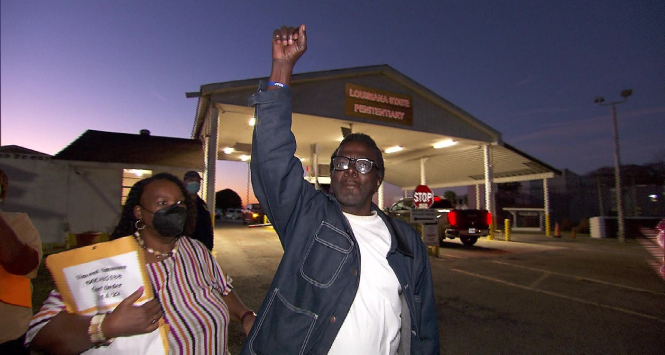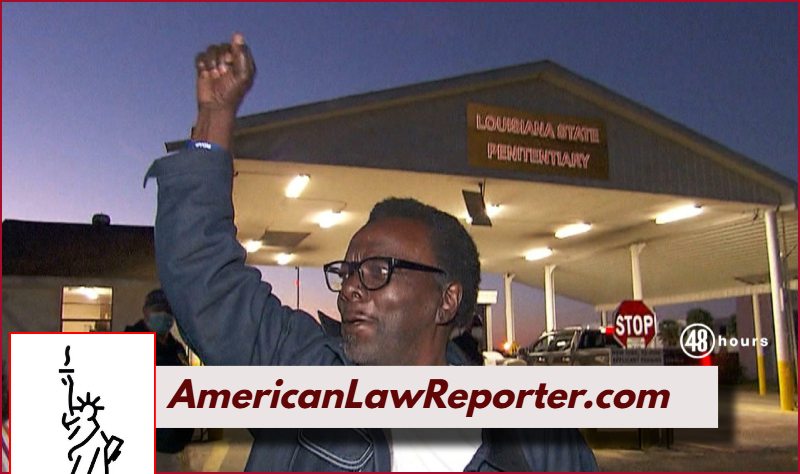The case of Vincent Simmons, a Black man who spent 44 years in prison for a crime he maintains he did not commit, has drawn national attention to the deep flaws within the American criminal justice system.
Simmons’ conviction in 1977 was overturned in 2022 by a Louisiana judge, yet his fight for justice continues as he seeks damages through a federal civil rights lawsuit.
His case illustrates critical legal issues, including racial bias in jury selection, due process violations, and prosecutorial misconduct—problems that persist in wrongful conviction cases across the United States.
Background of the Case

Vincent Simmons was convicted of two counts of attempted aggravated rape based on allegations from twin sisters Karen and Sharon Sanders, who were 14 years old at the time.
According to court records, Simmons was arrested by Robert Laborde, a sheriff’s deputy who was related to the alleged victims and their cousin Keith Laborde. Evidence suggests that Simmons was taken into custody without probable cause and physically assaulted by law enforcement to extract a confession.
At trial, the prosecution relied heavily on the testimony of the Sanders sisters and Keith Laborde.
However, the medical examination conducted after the alleged attack contradicted their claims, as it revealed that Sharon Sanders’ hymen was intact. Furthermore, Simmons was the only suspect in a police lineup who was handcuffed, a significant procedural irregularity that likely influenced the witnesses’ identification.
Legal Issues and Violations

1. Lack of Probable Cause and Due Process Violations
The Fourth Amendment of the U.S. Constitution protects individuals from unlawful arrests without probable cause. In Simmons’ case, the evidence suggests that his arrest was carried out based solely on the word of the alleged victims and their relative, without any independent corroboration or proper investigative procedure. Additionally, the use of physical violence to coerce a confession—if proven true—would constitute a clear violation of Simmons’ Fifth and Fourteenth Amendment rights.
2. Racial Bias and Jury Selection
Simmons, a Black man, was tried in a predominantly White parish, and it is likely that racial bias influenced his conviction. Studies have shown that all-White or predominantly White juries are more likely to convict Black defendants, particularly in cases involving White accusers. The fact that one of the Sanders sisters admitted she could not differentiate between Black individuals adds another layer of racial bias to the case.
3. Prosecutorial Misconduct and Withholding of Exculpatory Evidence
One of the most troubling aspects of Simmons’ case is the allegation that exculpatory evidence was suppressed. Under the Brady v. Maryland (1963) precedent, prosecutors are legally required to disclose any evidence that may exonerate a defendant. The medical report indicating that Sharon Sanders’ hymen was intact should have been provided to the defense, as it directly contradicted the prosecution’s narrative.
Furthermore, Simmons’ lawsuit claims that law enforcement officials “systemically coached” the witnesses to ensure a conviction. If proven, this would constitute a violation of Simmons’ right to a fair trial under the Sixth Amendment.
Overturning the Conviction
In February 2022, Judge Bill Bennett vacated Simmons’ conviction, stating that he did not receive a fair trial. However, Bennett did not issue a ruling on Simmons’ guilt or innocence.
Despite this, prosecutors declined to retry the case, effectively conceding that after 44 years, there was insufficient evidence to secure a conviction beyond a reasonable doubt.
This decision underscores the difficulty of overturning wrongful convictions in the U.S. legal system. Even when evidence emerges that a trial was unfair, courts often hesitate to acknowledge outright innocence, instead opting to vacate convictions on procedural grounds. This reluctance can hinder exonerated individuals from receiving adequate compensation and justice.
The Civil Rights Lawsuit and Implications
Simmons has filed a federal civil rights lawsuit against officials in Avoyelles Parish, alleging that they engaged in a cover-up to protect Keith Laborde and suppress the truth about the Sanders sisters’ allegations. The lawsuit seeks damages for the nearly 45 years he spent incarcerated, as well as accountability for the officials who allegedly fabricated evidence against him.
Simmons’ case raises important questions about prosecutorial and law enforcement immunity. While prosecutors and police officers generally have broad legal protections, there are exceptions for cases involving deliberate misconduct. If Simmons can prove that his constitutional rights were knowingly and intentionally violated, he may be entitled to significant financial compensation.
Conclusion: The Need for Criminal Justice Reform
Vincent Simmons’ wrongful conviction is yet another example of how systemic racism, prosecutorial misconduct, and a lack of due process can lead to the incarceration of innocent individuals. His case highlights the urgent need for criminal justice reforms, including:
- Stronger oversight of prosecutorial conduct to ensure compliance with Brady disclosure requirements.
- Reforming police lineup procedures to prevent suggestive identifications.
- Independent conviction review units to examine cases with potential wrongful convictions.
- Greater accountability for law enforcement officials who engage in misconduct.
As Simmons fights for justice in his civil lawsuit, his case serves as a stark reminder of the flaws in the American criminal justice system. Whether his lawsuit results in a settlement or a jury verdict, his story underscores the need for continued advocacy to prevent future wrongful convictions.

